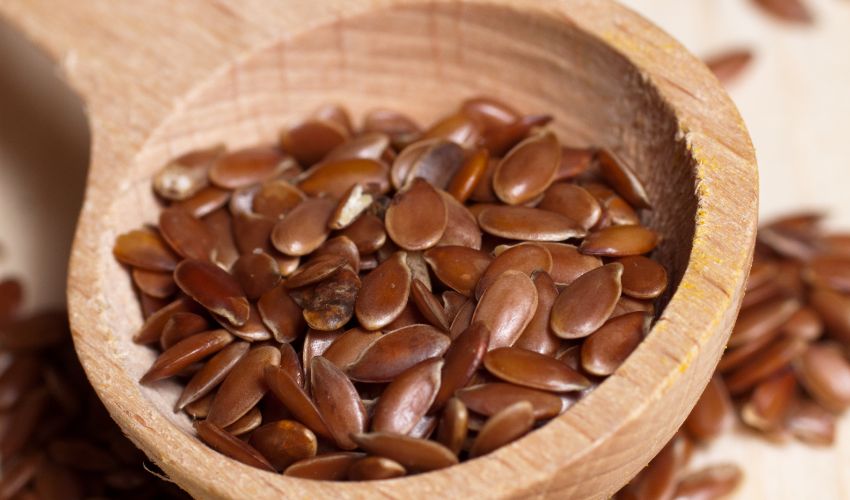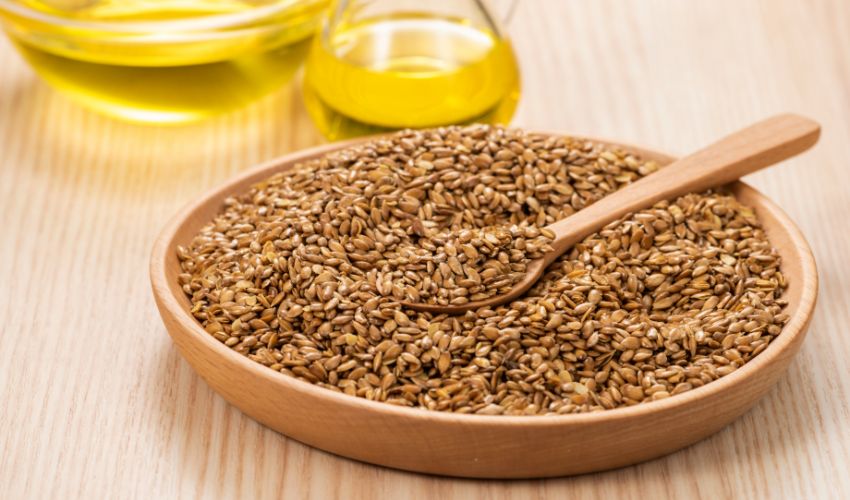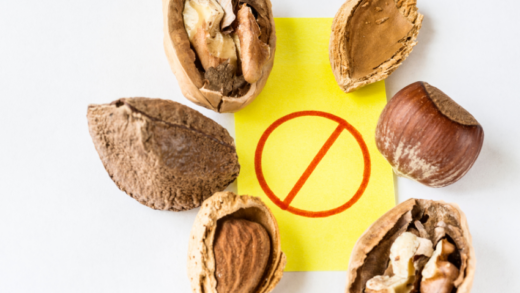Flaxseeds, also known as linseeds, are the tiny brown or golden seeds of the flax plant. For centuries, flaxseeds have been prized for their amazing health benefits and versatile culinary uses. These tiny seeds are packed with essential nutrients, such as fiber, protein, and healthy fats, as well as powerful antioxidants and anti-inflammatory compounds.
In recent years, flaxseeds have gained a lot of attention from health enthusiasts and nutritionists alike. Many studies have shown that incorporating flaxseeds into your diet can help improve digestive health, reduce inflammation, lower cholesterol levels, and even protect against certain types of cancer.
In this article, we’ll take a closer look at the health benefits of flaxseeds and explore some creative ways to incorporate these nutritious little seeds into your diet.
Health Benefits of Flaxseeds:
- Rich in Nutrients: Flaxseeds are a great source of essential nutrients, including fiber, protein, healthy fats, vitamins, and minerals. Just one tablespoon of flaxseeds contains 1.9 grams of fiber, 1.3 grams of protein, and 2.3 grams of healthy fats.
- Promote Digestive Health: The high fiber content in flaxseeds can help improve digestive health by promoting regular bowel movements and preventing constipation. Flaxseeds also contain lignans, which have been shown to have anti-inflammatory properties and may help reduce the risk of colon cancer.
- Lower Cholesterol: Flaxseeds are rich in alpha-linolenic acid (ALA), an omega-3 fatty acid that has been shown to lower cholesterol levels and reduce the risk of heart disease.
- Reduce Inflammation: Flaxseeds contain lignans and other anti-inflammatory compounds that can help reduce inflammation throughout the body, which may help reduce the risk of chronic diseases such as arthritis, diabetes, and certain types of cancer.
- Improve Skin Health: The essential fatty acids and antioxidants in flaxseeds can help improve skin health and prevent acne and other skin problems.

Creative Ways to Use Flaxseeds:
- Add to Smoothies: One of the easiest ways to incorporate flaxseeds into your diet is by adding them to your favorite smoothie recipe. Simply add a tablespoon or two of flaxseeds to your blender along with your favorite fruits and vegetables.
- Mix with Yogurt or Oatmeal: Flaxseeds can also be mixed with yogurt or oatmeal for a healthy and delicious breakfast. Sprinkle some flaxseeds on top of your yogurt or oatmeal and enjoy!
- Use as a Breadcrumb Substitute: Flaxseeds can be ground up and used as a healthy alternative to breadcrumbs. Simply replace the breadcrumbs in your favorite recipe with ground flaxseeds.
- Make Flaxseed Crackers: Flaxseeds can be used to make delicious and healthy crackers. Mix ground flaxseeds with water and spices to create a dough, roll it out, and bake in the oven until crispy.
- Use in Baked Goods: Flaxseeds can also be used in baked goods such as bread, muffins, and cookies. Simply replace a portion of the flour in your recipe with ground flaxseeds for added nutrition and a nutty flavor.
FAQs:
Can flaxseeds help with weight loss?
Yes, flaxseeds can be beneficial for weight loss. The high fiber and protein content in flaxseeds can help keep you feeling full and satisfied, which may reduce your overall calorie intake. In addition, the healthy fats in flaxseeds can help regulate blood sugar levels and promote fat burning.
How should flaxseeds be stored?
Flaxseeds should be stored in an airtight container in a cool, dry place, such as a pantry or refrigerator. Whole flaxseeds can be stored for up to one year, while ground flaxseeds should be used within a few weeks to prevent spoilage.
Are there any side effects of consuming flaxseeds?
While flaxseeds are generally safe for most people, consuming large amounts may cause digestive problems such as bloating, gas, and diarrhea. In addition, people who take blood-thinning medications should consult with their healthcare provider before consuming flaxseeds, as they may increase the risk of bleeding.
Can flaxseeds be consumed by people with nut allergies?
Yes, flaxseeds are not related to tree nuts or peanuts and can be safely consumed by people with nut allergies.
How much flaxseed should I consume per day?
The recommended daily intake of flaxseeds is one to two tablespoons. However, it’s important to gradually increase your intake to allow your body to adjust to the high fiber content.

Conclusion:
Flaxseeds are a true superfood that can provide numerous health benefits when incorporated into your diet. From promoting digestive health to reducing inflammation and lowering cholesterol levels, the amazing benefits of flaxseeds are hard to ignore. By adding a few tablespoons of flaxseeds to your daily meals, you can easily boost your nutrient intake and take a step towards a healthier and more balanced lifestyle. So go ahead and give these tiny seeds a try, and enjoy the many benefits they have to offer!
In summary, flaxseeds are a versatile and nutritious addition to any diet. They can be easily incorporated into your meals in a variety of ways, including sprinkling them on top of salads, adding them to smoothies, or using them as a healthy substitute for eggs in vegan baking. With their impressive nutrient profile and numerous health benefits, it’s no wonder that flaxseeds have become so popular in recent years.
While flaxseeds are generally safe for most people, it’s always a good idea to consult with your healthcare provider before making any significant changes to your diet. This is especially true if you have any underlying health conditions or are taking any medications that may interact with flaxseeds.
In conclusion, if you’re looking for an easy and delicious way to boost your overall health and wellbeing, consider adding flaxseeds to your daily routine. Not only are they packed with essential nutrients, but they can also help reduce the risk of chronic diseases and support optimal health in a variety of ways. So go ahead and give them a try – your body will thank you for it!






















